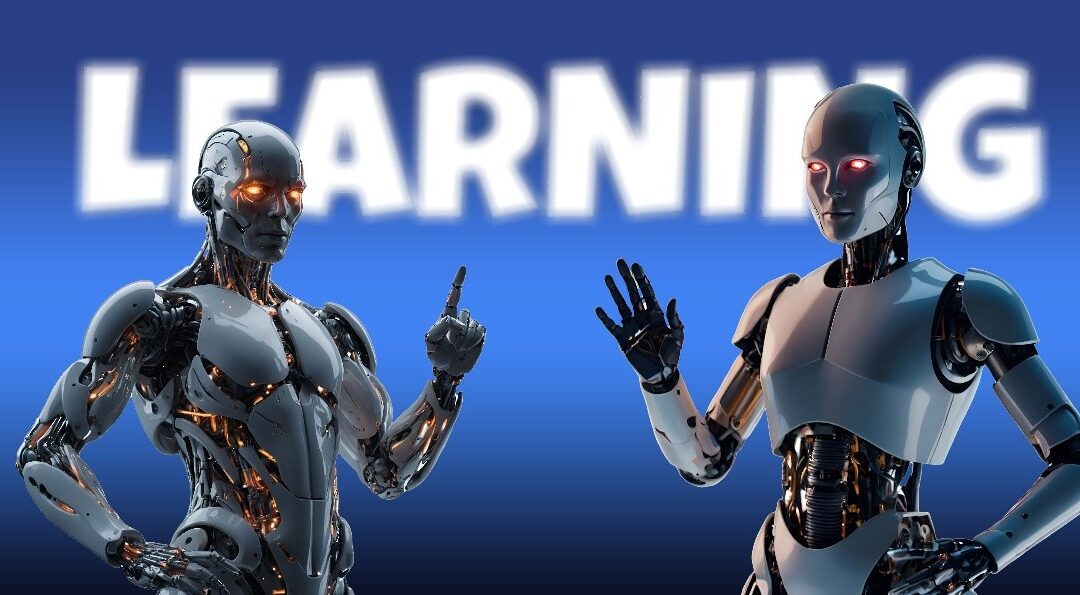Human-centred AI is key to empowering post-16 learners, especially in Maths, English and life skills. Christine shares how Artificial Intelligence (AI) will positively impact the future of learning – but only if we keep learners at the centre.
In the world of post-16 education and apprenticeships, we’re no strangers to change. But we are now witnessing a transformation unlike any before, driven not by policy or pedagogy, but by technology. AI is rapidly reshaping how people learn, work and engage ith the world around them.
As the recent Udemy Business AI-Powered Skills Development report notes, AI is “the greatest force of workplace change in our lifetimes.” That’s a bold claim, but one that feels increasingly hard to argue with, especially for those of us supporting training providers and adult learners preparing for careers in a volatile, AI-enhanced job market.
The Future of Learning: Contextualising Skills?
Park AI for now and consider Maths and English support.
For far too long it has been seen as a tick-box exercise, often disconnected from learners’ everyday experience. Yet in practice, core skills such as budgeting, communication and problem-solving are essential across every sector. Contextualised learning is not just good practice, it’s how we make learning stick.
AI offers an opportunity to transform this further. Tools like ChatGPT and Copilot can support the functional skills delivery of English and Maths by generating tailored tasks, offering instant feedback, or creating real-life scenarios. From budgeting simulations for apprentices to AI-translated numeracy tasks for ESOL learners, AI in education can empower both the learner and the educator.
As the report explains, “AI is accelerating effective, human-centred skills development.”
The goal is not automation for its own sake but personalisation that makes learning meaningful.
Digital Skills Aren’t Optional Anymore
While 84% of learning professionals surveyed by Udemy said AI tools improve learning effectiveness, less than half are currently using them. In the post-16 and apprenticeship sector, this digital lag is a risk. Many educators feel underprepared, unsure where to start or how to do so safely.
But the reality is: digital skills for educators are no longer optional. We must equip tutors, assessors and curriculum leads with the confidence to explore AI tools meaningfully. This doesn’t mean mastering every platform, it means understanding how to use technology to improve the learner journey, not complicate it.
CPD sessions and self-assessment for training providers, help teams audit their digital practice, embed AI ethically and align learning strategies with wider quality assurance goals. By the end of the sessions, attendees can see the benefits of the innovative technology we have at our disposal and, more importantly, gain insight into how AI will impact the future of learning.
Inclusion Must Stay at the Heart of AI Innovation
AI should not be used to streamline at the expense of the learner. The same tools that offer efficiency gains can also be exclusionary if not thoughtfully implemented.
Done right, inclusive learning strategies that use AI can do more to widen access and support learner voice. From auto-captioning tools for deaf learners to AI-generated reading support for those with dyslexia, the possibilities for supporting diverse learners are real and growing.
The McKinsey insight featured in the report is particularly relevant to the education space:
“The companies that derive the most value from AI will be those that create trust with their customers, employees and stakeholders. People must trust AI enough to hand over tasks.”
In education, trust starts with human-centred teaching, not automation for efficiency. Teaching and learning quality improve when technology enhances the educator’s role, not replaces it.
Final Thought: Let’s Lead, Not Lag
This is not about adopting AI for its own sake, it’s about understanding how AI will impact the future of learning, and asking the right questions:
- How can AI help us improve core skills delivery in Maths and English?
- How do we build digital confidence among educators in the post-16 space?
- How do we ensure inclusive education is a non-negotiable in AI implementation?
These are the conversations I have every day with providers, local authorities and curriculum teams. I believe that by embracing AI as a learning support tool—not a shortcut—learners can thrive, not just survive, in the skills economy.

